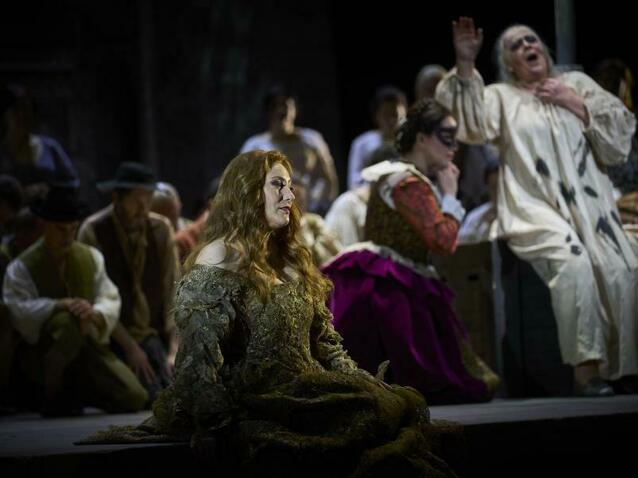 © David Ruano / Gran Teatre del Liceu
© David Ruano / Gran Teatre del Liceu
Schedule
Glossary
show the glossarySearch
Connect
-
Connect to your account
-
Create your account
Community
Chronique à la une
 © David Ruano / Gran Teatre del Liceu
© David Ruano / Gran Teatre del Liceu
Filter
All columns
Leonard Bernstein’s Trouble in Tahiti and A Quiet Place at the...
Sam SmithLeonard Bernstein composed his one act opera Trouble in Tahiti in 1952, and on this occasion wrote the libretto himself. It concerns a married couple who on the surface have it made with their beautiful suburban home, but who find it difficult to live with each other and constantly bicker and fight. In 1983 he wrote A Quiet Place, which considers where the same family’s members are thirty years later. While performing both in the same evening would seem an obvious thing to...
First Revival of Tobias Kratzer’s Fidelio at the Royal Ballet ...
Sam SmithFidelio is the only opera that Beethoven ever wrote. Originally entitled Leonore, oder Der Triumph der ehelichen Liebe, with the libretto prepared by Joseph Sonnleithner from the French of Jean-Nicolas Bouilly, it premiered at the Theater an der Wien on 20 November 1805. The following year Beethoven’s friend Stephan von Breuning rewrote the libretto to create a second version that shortened the opera from three acts to two. In 1814 Beethoven revised his opera yet again,...
A Deeply Thoughtful and Moving Suor Angelica at the London Col...
Sam SmithGiacomo Puccini’s Il trittico, which premiered at the Metropolitan Opera in 1918, is a triptych of one-act operas comprising Il tabarro, Suor Angelica and Gianni Schicchi. The composer originally intended for each opera to reflect one part of Dante’s Divina Commedia, although in the event only the final work is based on the poem. As a result, the only theme that really underpins the operas is that they all involve, in one way or another, the concealment of a...
Liceu: A New Expression for the Dark Beauty of Shostakovich
Xavier PujolAs the year commemorating the fiftieth anniversary of Dmitri Shostakovich's death approaches, smart theatres are preparing new productions of Lady Macbeth of the Mtsensk District, the composer's second, last and most famous opera, with the idea of renting it out to other theatres and thus recouping their investment. Beyond its many musical and dramatic merits, this opera, one of the finest of the 20th century, is - unfortunately - known for the fact that Stalin disliked it and...
Ted Huffman’s New Production of Eugene Onegin at the Royal Bal...
Sam SmithPiotr Tchaïkovski’s Eugene Onegin, which premiered in Moscow in 1879, is based on Alexander Pushkin’s eponymous verse poem. The libretto, which was organised by the composer himself, closely follows certain passages in its source material and retains much of the poetry. Set in the 1820s in and around St Petersburg, it sees Tatyana, the daughter of landowner Madame Larina, fall in love with one Eugene Onegin. She is introduced to him when her sister Olga’s...
Wondrous Conducting and a Fine Cast in Tosca at the Royal Oper...
Sam SmithBased on Victorien Sardou’s 1887 French-language play, Giacomo Puccini’s Tosca of 1900, with a libretto by Luigi Illica and Giuseppe Giacosa, not only occurs in a specific time and place, but on a precise date that can be linked to an historical event. All of the action takes place during the afternoon, evening and early morning of 17 and 18 June 1800, following the Battle of Marengo between Napoleon’s army and Austrian forces. The Austrians were initially...
